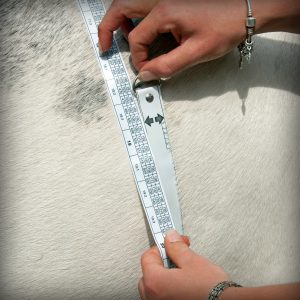
500
View Article
You can take a look at your horse and have an idea whether they’re thin or fat or just about right, to your eye. But it’s important to know (and monitor) your horse’s weight more accurately than “eyeballing” it.
» View Article
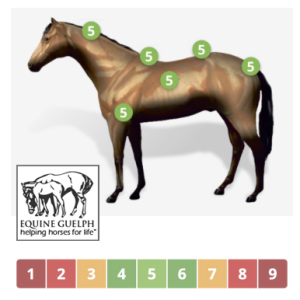
100
View Article
Article re-posted with kind permission by Equine Guelph: http://equineguelph.ca/index.php Equine Guelph has made a New Year’s Resolution to empower horse owners...
» View Article
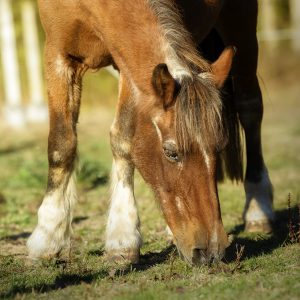
100
View Article
A horse’s nutritional needs change as they age. Consuming, digesting and absorbing enough calories and nutrients becomes more difficult for...
» View Article
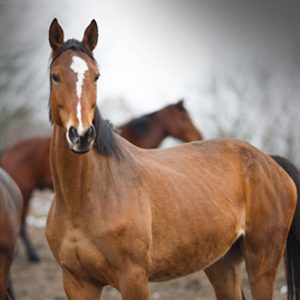
100
View Article
Horses that have demanding training or competition schedules, broodmares raising foals, and growing horses can expend a huge number of calories doing their jobs. They need energy and lots of it, but they need the kind of energy that won’t cause digestive upset or improper growth patterns.
» View Article
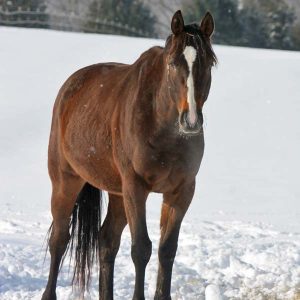
511
View Article
It is easy for horses to drop weight in the cold winter months and you may not notice it until...
» View Article

759
View Article
The capacity of the gastrointestinal tract to absorb nutrients becomes less efficient as horses age. Many older horses are unable...
» View Article
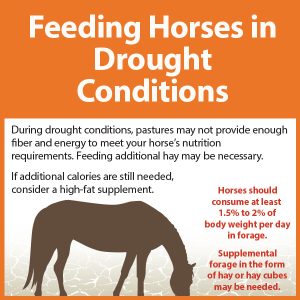
100
View Article
During drought conditions, pastures may not provide enough fiber and energy to meet your horse’s nutrition requirements. Feeding additional hay may be necessary. If additional calories are still needed, consider a high-fat supplement. Horses should consume at least 1.5% to 2% of body weight per day in forage. Supplemental forage in the form of hay or hay cubes may be needed.
» View Article
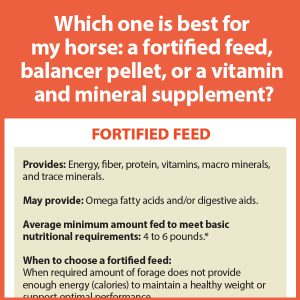
500
View Article
Confused about the difference between a fortified feed, balancer pellet, and vitamin and mineral supplement? You are not alone. We put together a simple chart to help you choose which one is right for your horse.
» View Article
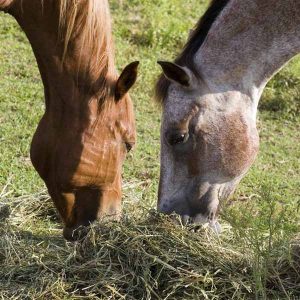
705
View Article
In every aspect of our lives we strive for balance. As owners and caretakers of horses we should also make...
» View Article

535
View Article
Dietary energy dictates body condition in healthy horses. Too little energy and the horse loses weight; too much energy and...
» View Article

1,275
View Article
Why choose Equi-Jewel? Equi-Jewel® was developed by Kentucky Performance Products, LLC to safely meet the energy needs of today’s horses....
» View Article
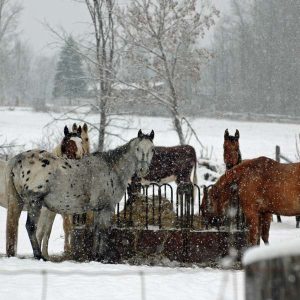
443
View Article
As pastures fade from green to brown, horse owners all over will soon be feeding hay to meet their horses’...
» View Article
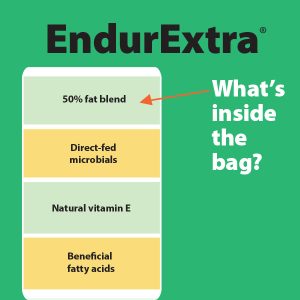
287
View Article
Click here to download a print version of this infographic. Text-only version of “EndurExtra®: What’s Inside the Bag” A blend...
» View Article
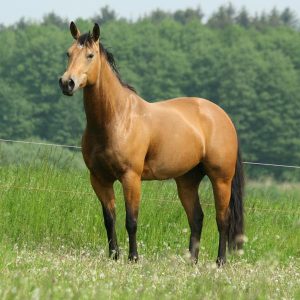
755
View Article
Packed with energy Fat is an effective energy source for horses. Pound for pound, fats provide 2.25 times more energy...
» View Article
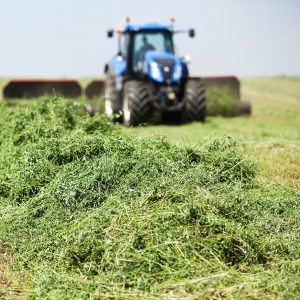
3,931
View Article
The reason alfalfa gets a bad rap for making horses “hot” is because alfalfa is higher in digestible energy and...
» View Article
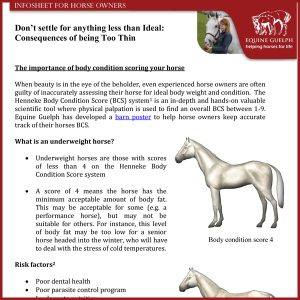
364
View Article
Article re-posted with kind permission by Equine Guelph: http://equineguelph.ca/index.php The importance of body condition scoring your horse When beauty is in...
» View Article
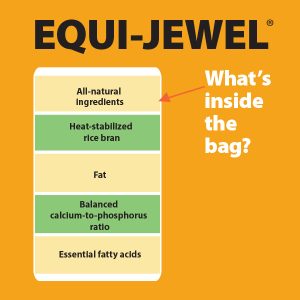
1,099
View Article
Equi-Jewel contains all-natural ingredients that provide the calories your horse needs to thrive. Equi-Jewel’s high-fat formula reduces the risk of digestive upset, supports optimal muscle function, and sustains a calm, cool attitude.
» View Article
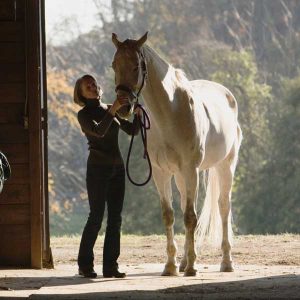
3,913
View Article
Horses 18 years of age and older are considered geriatric or senior horses. Some horses, like some humans, age more...
» View Article

351
View Article
Simply put, horses need energy. Energy is traditionally supplied by cereal grains such as oats, corn, and barley. These feedstuffs...
» View Article

535
View Article
If your Thoroughbred is coming straight from the track and has been in training, their metabolic rate will still be high due to intense training and elevated caloric intake. Once leaving the track, many Thoroughbreds benefit from a period of rest and relaxation, along with time to adjust to their new schedules. Their caloric requirements may decrease depending on the type of work involved in their new career, but this will not happen immediately.
» View Article
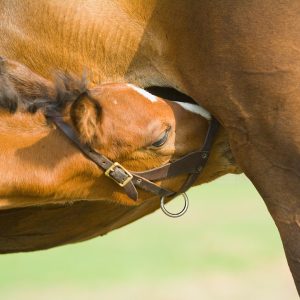
1,284
View Article
Lactation places extraordinary physiological demands on mares. Well-fed lactating mares produce the equivalent of 3-4% of their body weight in...
» View Article
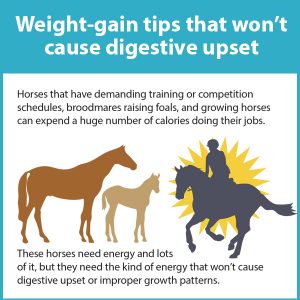
787
View Article
Horses that have demanding training or competition schedules, broodmares raising foals, and growing horses can expend a huge number of calories doing their jobs. These horses need energy and lots of it, but they need the kind of energy that won’t cause digestive upset or improper growth patterns.
» View Article
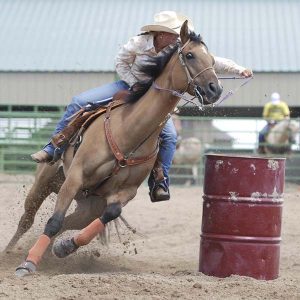
1,209
View Article
Can what you feed be making your horse a little crazy? The short answer is yes, it might be. Diets...
» View Article
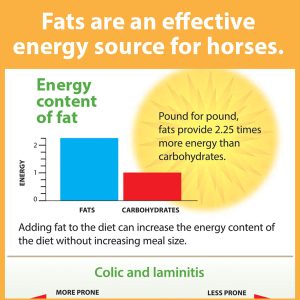
717
View Article
Pound for pound, fats provide 2.25 times more energy than carbohydrates. Adding fat to the diet can increase the energy content of the diet without increasing meal size.
» View Article

























